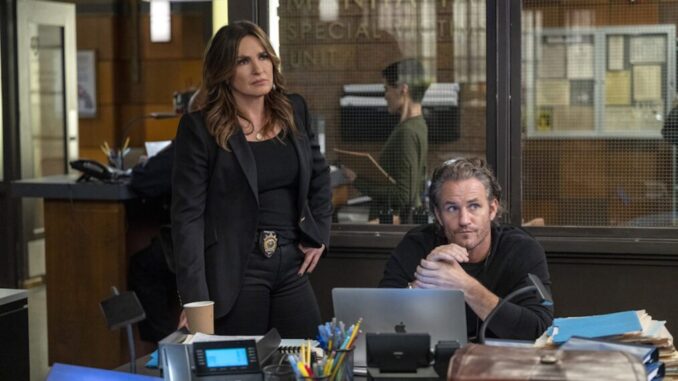
The Enduring Crucible: Mariska Hargitay and the Decades on SVU
Decades. The word hangs heavy with the weight of time, of relentless dedication, of an immersion so profound it ceases to be mere performance and transforms into a life’s work. When Mariska Hargitay “opens up” about her enduring tenure as Olivia Benson on Law & Order: SVU, she isn't just recounting a job; she's unfurling the tapestry of a unique human experience, a crucible where art and advocacy, character and self, have melted and reformed over two and a half decades. Her narrative is not just an actor’s memoir but an illustrative testament to the power of sustained empathy, the quiet heroism of bearing witness, and the transformative burden of carrying stories of the darkest human acts.
From the very first episode, Hargitay stepped into the skin of a character designed to navigate the harrowing landscape of sexual violence and abuse. But what began as a role quickly became a spiritual and psychological permeation. For twenty-five years, Benson has been a constant, a steadfast sentinel in the shadowed corridors of justice, a beacon for victims. Hargitay's "opening up" reveals the profound internal cost of this vigil. It's not simply memorizing lines; it's internalizing countless narratives of pain, betrayal, and resilience. One can almost picture the echoes of victims' cries, the silent pleas, the hard-won victories, all residing within her, an archive of human suffering and defiant hope. This sustained exposure, she implies, reshapes the very soul, honing an empathy so acute it transcends the screen. The actor becomes a vessel, a conduit for understanding.
What Hargitay illuminates most vividly is the blurring of lines between actor and advocate. The fictional detective’s badge morphed into the real-world emblem of the Joyful Heart Foundation, her organization dedicated to helping survivors of sexual assault and domestic violence. Her decision to stay, year after year, wasn't just about professional success; it was, she suggests, a deepening sense of mission. Olivia Benson, the character, empowered Mariska Hargitay, the woman, to become a national voice, a tireless champion. This isn't just illustrative of an actor finding purpose; it's a rare and powerful example of art not just imitating life, but actively shaping it, pushing for tangible change. She speaks of receiving letters, meeting survivors, understanding the very real impact of her fictional work – a feedback loop that continually reaffirmed her commitment, cementing the show's legacy beyond entertainment.
The endurance itself is a narrative arc. Decades on SVU means Hargitay has witnessed, through the lens of her character, profound societal shifts in how we talk about, prosecute, and understand sexual violence. From the early 2000s, when conversations around consent and victim blaming were far less nuanced, to the #MeToo era, Olivia Benson has evolved as society has evolved, often leading the charge on screen. Hargitay’s reflection is not just on her own journey, but on this shared societal journey of awareness. She’s seen trends emerge and fade, legal precedents shift, and the collective consciousness slowly, painfully, awaken. She's been a bedrock in a constantly moving cultural current, a lodestar of justice.
Ultimately, Mariska Hargitay’s decision to “open up” about her decades on SVU is an act of shared vulnerability. It invites us not just to appreciate her performance, but to understand the profound human investment behind it. It’s an illustrative essay in itself, painted with the quiet hues of exhaustion and exhilaration, of personal sacrifice and monumental purpose. She shows us that for some, a role is not just a job, but a calling that infiltrates the very essence of being, leaving an indelible mark that resonates far beyond the soundstage, shaping not just a career, but a legacy woven into the fabric of justice itself.
